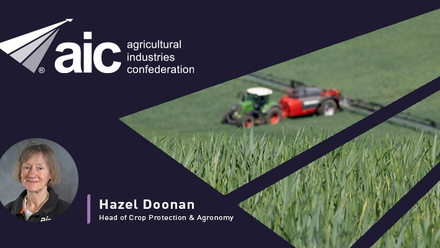Agricultural Industries Confederation (AIC) has expressed concerns over the delays in the GB agricultural chemicals regulatory regime, which it claims is adding cost and uncertainty for farms and agri-supply businesses.
The AIC has called for urgent action to address the delays, which it says are causing significant disruption to the supply chain and impacting the ability of farmers to access the products they need.
According to the AIC, the delays are due to a combination of factors, including the complexity of the regulatory process, the lack of resources and expertise within the regulatory bodies, and the need for more effective communication between the industry and the regulators.
The AIC has also highlighted the need for greater transparency and accountability within the regulatory process, and has called for the introduction of more robust and effective risk assessment and management procedures.
As one industry expert noted, ‘The delays are causing significant uncertainty and disruption to the supply chain, and are having a direct impact on the ability of farmers to access the products they need.’
The AIC has urged the government to take immediate action to address the delays and to work with the industry to develop a more effective and efficient regulatory regime.
In a statement, the AIC said, ‘We urge the government to take immediate action to address the delays and to work with the industry to develop a more effective and efficient regulatory regime. We believe that this is essential to ensure the continued success of the UK’s agricultural industry.’
The AIC has also called for greater investment in the regulatory bodies and for the introduction of more effective communication channels between the industry and the regulators.
‘We believe that this is essential to ensure the continued success of the UK’s agricultural industry,’ said the AIC.
The AIC has also highlighted the need for greater transparency and accountability within the regulatory process, and has called for the introduction of more robust and effective risk assessment and management procedures.
In conclusion, the AIC has called for urgent action to address the delays in the GB agricultural chemicals regulatory regime, and has urged the government to work with the industry to develop a more effective and efficient regulatory regime.









